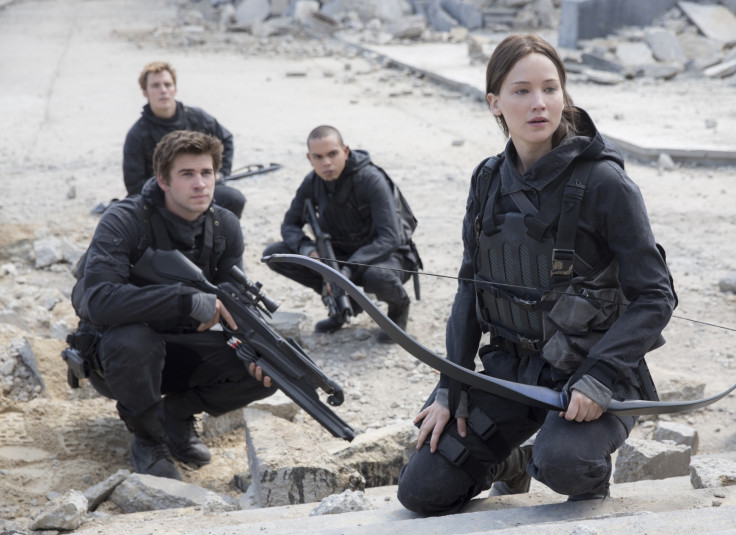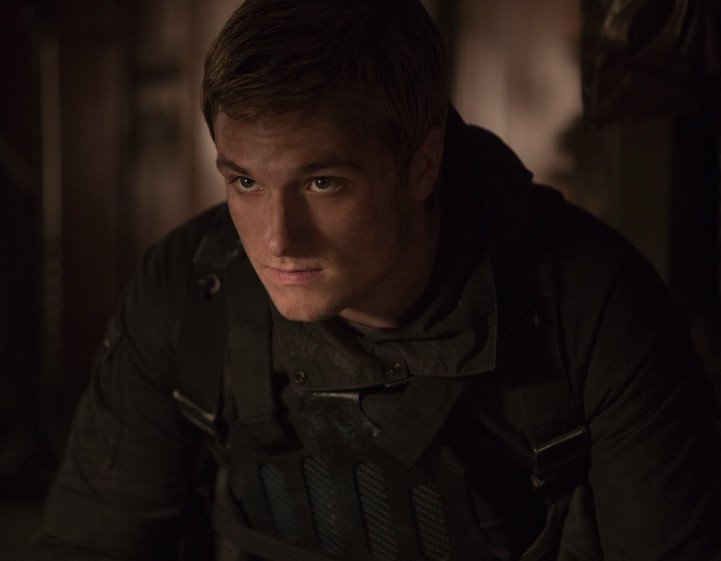The Hunger Games: Mockingjay Part 2 review – Dystopian drama takes its tale to darker depths

"It's always personal," Jennifer Lawrence's Katniss Everdeen mumbles as she looks out upon the destruction that enemy President Coriolanus Snow has unleashed upon the Districts she's so desperately trying to liberate. A befitting line in a film that makes everything just that, for both the characters on the screen and the audience members that have watched them now for years.
Told more subjectively than the past three films through Lawrence's nuanced expressions and desperate attempts at maintaining every character's humanity, The Hunger Games: Mockingjay Part 2 is the first instalment that influences your decision of who to root for, who to mistrust or sometimes even to hate.
It certainly makes it the most involving chapter, and in a film where you so badly want the hero to triumph, and having grown to know and love the characters, it works. But being so emotionally invested in the characters' lives only makes it darker when you realise that a happy ending isn't necessarily a given.
Considering that Part 1 was almost devoid of action as the District 13 rebels calculated their attack on ruthless dictator Snow (Donald Sutherland), Part 2 surprisingly doesn't feature all that much. It's evident from the get-go that Katniss is as ready for the action as we are, evidenced when she states confidently to scene-stealer Johanna Mason (Jena Malone) that she is "going to kill Snow."
But morally-questionable rebellion leader Alma Coin (Julianne Moore), and her reluctant second-in-command Plutarch Heavensbee (Philip Seymour Hoffman) aren't keen on the idea of their mockingjay being vulnerable on the front line, and once again they pull Katniss's strings from behind the curtain.
Characteristically ignoring her superiors, Katniss sneaks to the Capitol to join the troops that are planning to charge the city. Tracking her, Coin orders Katniss, her bodyguard Boggs (Mahershala Ali) and the rest of her familiarly-faced squad to remain stay from the danger and simply shoot motivational videos to rally the other rebels.

While obviously following Suzanne Collins' original story, Katniss's separation from the actual rebellion can't help but disturb the momentum that has been building since 2013's Catching Fire.
It makes for some pacing issues too, as rather than the characters epically storming into battle together for one final stand-off, we're left with Katniss, Gale (Liam Hemsworth), Finnick (Sam Claflin), Cressida (Natalie Dormer) and a few others miles behind the real fight. They do come across terrifying hurdles themselves, but the sporadic nature of these threats sometimes makes things hard to follow.
In an attempt to keep the rebels away, Snow has planted "pods" all over the city – hidden booby traps that, when triggered by movement, unleash weapons such as machine guns or tsunamis of crude oil. One particular segment sees the team take their advances towards Snow's mansion underground, where they come up against a pack of savage inhuman "mutts".
Scenes where the squad encounter these things are the most thrilling, delivering the sort of action that we've been waiting for, but it's also harrowing as many characters fail to make it through the tunnels and it almost makes you feel guilty for wanting the action.
If you didn't already know, the franchise stems from a young adult series of books, but you'd never guess that here. Undoubtedly the darkest film in the series, it goes hard and heavy on its subject matter, becoming more of a war movie than something you'd expect from a bunch of children's novels.
From corrupt political figures and class segregation, to scare-mongering propaganda, war and even post-traumatic stress disorder, its weighty, and unlike the lighter earlier instalments that interjected humour through Elizabeth Banks' Effie or Stanley Tucci's Caesar, it never lets up this time.

Thankfully, the love triangle consistently comes secondary to the drama of overthrowing Snow. Despite many people caring about who Katniss chooses, the fact that the film manages to make it still relevant without relying on cliché is a truly impressive feat from screenwriters Peter Craig and Danny Strong.
In every scene that touches on it, they cleverly use Katniss's romantic relationships to ground her and give her even more propulsion to take down the bad guy. The stakes are high for Katniss, but not because she wants to save herself, because she needs redemption for those around her.
It's not just the allies who are alive that she wants this for, either. Constant name-drops of fallen comrades from the previous films – such as Mags, Cinna and Rue – add even more gravitas to the rebels' cause as you will them to succeed.
"If you kill Snow, their deaths will mean something," Peeta tells Katniss in a particular moment of hopelessness and it seems to give both her, and you as a viewer, an unrelenting desperation to see the villain meet his end.
Intentions aside, the melancholy that is felt throughout the entire picture is resonated most with scenes involving, or more specifically not involving, Hoffman, who tragically died during the filming of Mockingjay Part 1.
He appears in the movie more than expected, but is missed in a poignant scene where Woody Harrelson's Haymitch delivers a moving letter to Katniss from Plutarch, voicing how he hopes that one day she'll find peace post-games.
It's a hard-to-swallow scene given the situation, but adds a welcome resonance to what is essentially an emotional and gut-wrenchingly serious film about fighting for salvation and justice.
© Copyright IBTimes 2025. All rights reserved.






















